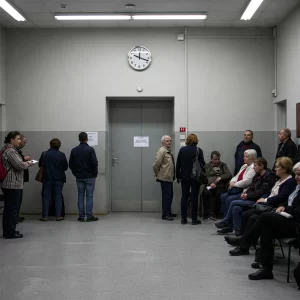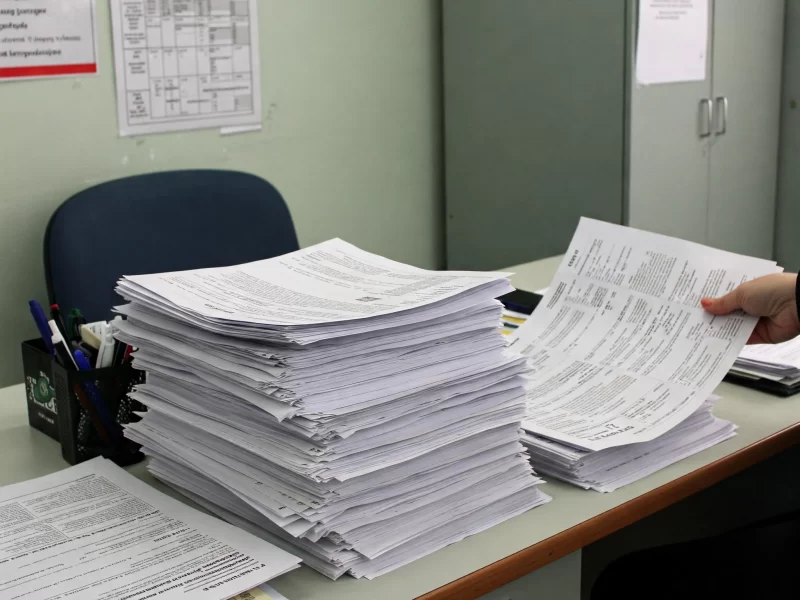

Inclusive allowance represents a significant form of financial support to persons with disabilities in the Republic of Croatia. The Inclusive Allowance Act (the “Inclusive Allowance Act”) entered into force on 1 January 2024. This law was passed with the key goal of consolidating the various existing rights for people with disabilities. Prior to this law, there were separate rights such as personal disability allowance, assistance and care allowance, increased allowance for children with disabilities and financial assistance for unemployed persons with disabilities. The Croatian Parliament adopted this law on December 15, 2023. The main purpose of the inclusive allowance is to help persons with disabilities overcome various obstacles that may hinder their full and effective participation in society on an equal basis with others.
What is an inclusive allowance?
An inclusive allowance is defined as a cash allowance intended for people with disabilities. Its purpose is to ease the day-to-day costs associated with the special needs of these people. According to the Inclusive Allowance Act, the goal of this allowance is to compensate for the increased cost of living faced by people with disabilities, allowing them to be more equally included in all aspects of life. It is important to emphasize that this supplement is exempt from enforcement, which provides users with additional financial security. The right to an inclusive allowance is recognized as a percentage of the base, which is currently 120 euros. The decision on the amount of the base was made by the Government of the Republic of Croatia on January 11, 2024.
Who is entitled to the Inclusive Allowance?
Persons with disabilities with varying degrees of impairment and severity of disability are entitled to an inclusive allowance. In particular, this right is exercised by:
- Adults with the third or fourth degree of disability (impairment of functional abilities) who have the status of a person with a disability in accordance with a special law.
- Children with the second, third or fourth degree of disability (impairment of functional abilities), regardless of whether they have the official status of a person with a disability.
- Adults and children with the second or third degree of disability (impairment of functional abilities), regardless of whether they have the status of a person with a disability.
The level of support required is classified into five levels, depending on the severity of impairment of functional abilities and the Barthel index, which assesses a person’s ability to independently perform basic life activities.
However, there are also certain categories of people who are not entitled to an inclusive allowance. These are the following persons:
- Persons who have been granted accommodation or organized housing services under the Social Welfare Act or other regulations.
- That receive personal disability allowance according to special regulations.
- Which receive an allowance for assistance and care according to special regulations, with the exception of beneficiaries who have exercised this right according to the regulations on pension and disability insurance that were in force until 31 December 1998.
In addition, for the fourth and fifth levels of support, the right to the inclusive allowance is not granted to persons who own another apartment or house (other than the one they use for housing) that they can alienate or rent in order to provide funds for full participation in society. Also, this applies to those who own business premises that they do not use for performing registered activities, and those who are provided with accommodation in a social welfare, health or other institution, i.e. organized housing.
The right to the inclusive allowance is suspended for beneficiaries who are serving a prison sentence, in a health institution or who have been staying abroad continuously for more than six months.
How to Exercise the Right to an Inclusive Allowance: Prerequisites and Procedure
In order to be eligible for an inclusive allowance, certain prerequisites must be met. The basic assumption is the existence of a certain degree of disability that is defined by the law and regulations on expertise. Also, there must be no impediment to the exercise of rights, such as the use of accommodation services or the receipt of other similar benefits (except for the exceptions mentioned above). The level of support, and thus the amount of the inclusive allowance, depends on the estimated degree of impairment of functional abilities.
The procedure for obtaining an inclusive allowance begins with the submission of an application to the competent regional office of the Croatian Social Welfare Institute (HZSR). Upon receipt of the application, the HZSR conducts the procedure of recognition of rights. As part of this procedure, the level of support is determined based on the findings and opinions of the Institute for Expertise, Vocational Rehabilitation and Employment of Persons with Disabilities. The Institute for Expertise conducts the assessment of functional abilities in accordance with the applicable regulations. Upon completion of the assessment, the HZSR issues a decision on the right to an inclusive allowance.
It is important to note that beneficiaries who received certain benefits on 31 December 2023 (child allowance for a child with a disability, financial assistance for unemployed persons with disabilities, assistance and care allowance and personal disability allowance) did not need to submit a new application. In these cases, the HZSR has ex officio initiated the procedure to determine whether they meet the conditions for the inclusive allowance.
Amount of Inclusive Allowance and Jurisdiction
The amount of the inclusive allowance depends on the level of support that has been determined for the beneficiary. The basis for calculation is 120 euros. The amounts by support levels are as follows:
| Level of support | Percentage of the base | Amount in Euros |
| First | 600% | 720 |
| Other | 400% | 480 |
| Third | 360% | 432 |
| Fourth | 135% | 162 |
| Heel | 115% | 138 |
The Croatian Social Welfare Institute (HZSR) is responsible for deciding on the right to an inclusive allowance. The HZSR issues a decision recognizing or rejecting the right to this allowance. Although the research materials do not explicitly state who makes the payment of the inclusive allowance, it is logical to assume that the payment is made through the state treasury or another authorized agency after the HZSR makes a positive decision.
Problems with payment and the right to sue for the silence of the administration
Unfortunately, many people in Croatia are still waiting for a decision on their right to an inclusive allowance, leading to significant delays. Despite the legal deadline of one year (until the end of December 2024) to resolve rights acquired on the basis of disability by 2023, many beneficiaries complain about the slowness of the procedure. The Ombudswoman for Persons with Disabilities has also received numerous complaints from dissatisfied citizens who have been waiting for months for a decision to be made. In January 2025, about 110,000 citizens were still waiting for a solution, and in October, about 48,000 old users were left without a solution.
In such cases, when the state authorities do not act within the legal deadlines, persons who are entitled to the inclusive allowance have the option of filing a lawsuit for protection from the silence of the administration. This legal option allows individuals to request judicial intervention in order to force the competent authority (HZSR) to make a decision on their claim within a reasonable time. Although there is a right to sue for the silence of the administration, it is important to be informed about the specific procedures and deadlines prescribed by Croatian administrative law, and in such situations it is recommended to consult a legal expert.
Conclusion
The inclusive allowance represents an important step towards ensuring greater inclusion and equality of persons with disabilities in Croatian society. This blog has provided an overview of the key aspects of the Inclusive Allowance Act, including the definition, who is entitled to it, the prerequisites and procedure for exercising the right, the amount of the allowance and the competent authorities. Despite the implementation challenges and delays in payments faced by many beneficiaries, it is important for persons with disabilities to be aware of their rights and redress options. If you believe that you are eligible for an inclusive allowance, we encourage you to submit an application to the Croatian Social Welfare Institute. In the event of a long wait for a solution, do not ignore the possibility of a legal remedy through a lawsuit for protection from the silence of the administration.
For any additional questions, you can contact us at:
